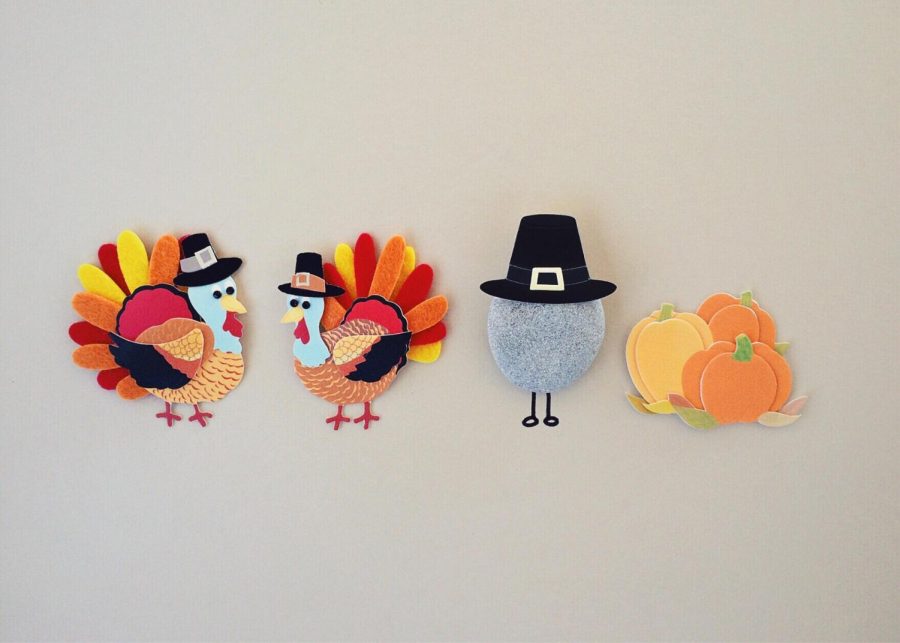Thanksgiving should be taught right
When we think about the origins of Thanksgiving, our minds immediately picture the Plymouth colonists and the Wampanoag Indian sit- ting down to have a feast to celebrate the fall harvest.
We’ve learned throughout the years in grade school that this was the first Thanksgiving, and since then the tradition has been upheld.
Today, we celebrate Thanksgiving on the fourth Thursday in November. The holiday has evolved into celebrating family, what we are grateful for and of course stuffing ourselves full of turkey. But do we really know what happened back in Massachusetts in the 1600s? Are we celebrating for the wrong reasons?
According to the Manataka American Indian Council, the big feast between the colonists and Wampanoag Nation only happened once in 1614.
The story of the origin of Thanksgiving began that year, when a group of English travelers sailed home with a ship of Patuxet Indians to use as slaves. The group of travelers left behind smallpox and wiped out the Patuxet Indians who were able to escape being captured.
When the Pilgrims arrived in Massachusetts Bay, they came across Squanto, one of the Patuxet Indians that survived. The Pilgrims were helped by Squanto, who taught them how to properly harvest their crops and created a negotiation between the Pilgrims and the Wampanoag Nation. By the end of 1614, the Pilgrims invited the Wampanoag Nation to feast with them.
Years after the peaceful feast be-tween the Wampanoag Nation and the Pilgrims, according to the Manataka American Indian Council, around 700 Wampanoag Indians were celebrating their annual Green Corn Festival in 1637.
The sleeping Wampanoag were surrounded by English mercenaries who demanded them to come outside.
When the Wampanoag came out of their shelters, they were shot or clubbed to death, while women and children were burned alive.
If you think that this was senseless and inhumane, the day after this massacre on the Wampanoag Nation, the governor of Massachusetts declared “A Day of Thanks- giving” because 700 innocent men, women and children were murdered.
Now that we know both sides of the Thanksgiving origin, we can see why there are strong feelings against the celebration of the holiday. Which brings back the question: are we celebrating the holiday for the wrong reasons?
Thanksgiving is not a necessary holiday in my eyes went through.
Granted, the modern-day meaning behind the celebration of Thanksgiving is about being grateful for the things we have and being able to celebrate the unity of family.
This new intention does not, however, preclude that the November holiday causes controversy because of the dark origins of the holiday it- self.
If we do change anything concerning Thanksgiving, it should be teaching the correct story and not having to capitalize the image of colonists and Native Americans.
Students at CSUSM can advocate for the better representation of the Native American community and hold seminars to educate those who might not have knowledge of the harsh reality of Thanksgiving.
By disregarding Thanks- giving, students who identify with being a part of the Native American community will not have to feel like they are being misrepresented by the media.


